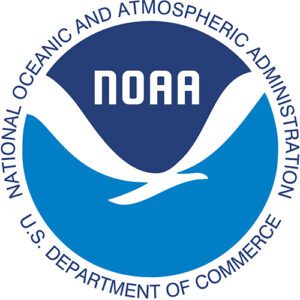
Federal officials are recommending over $265 million in funding for new projects nationwide, including salmon habitat in Alaska, California, Hawaii, Oregon and Washington state, to help strengthen climate resilience of coast ecosystems and communities.
The National Oceanic and Atmospheric Administration (NOAA) said in an April 21 announcement that the projects are supported by the Biden-Harris Administration’s Bipartisan Infrastructure law, with funds leveraged from the Inflation Reduction Act. NOAA said these projects would reconnect rivers to their historic floodplains, outplant corals to rebuild reefs, build living shorelines to protect coasts from erosion and sea level rise, and more.
Beneficiaries identified by NOAA include endangered Southern Resident killer whales by benefitting their prey, the announcement said.
While the work will build on over two decades of past NOAA-supported restoration work in these watersheds, those involved in such projects say this is only the start of decades more work to be done.
Projects listed include $3.8 million for restoration of Resurrection Creek on Alaska’s Kenai Peninsula, an area historically altered by gold mining, to benefit salmon species and support prey for Cook Inlet beluga whales.
Six California projects include $7 million for the fourth phase of the Prairie Creek Floodplain Restoration Project for restoration of salmon habitat in northern Humboldt County; $8.4 million for floodplain habitat restoration at seven sites in the lower Russian River watershed; $4.9 million for restoration of bull kelp within Greater Farallones National Marine Sanctuary; $4.9 million for priority coho salmon and steelhead watershed restoration in the northern Santa Cruz Mountains; $5.4 million for rearing habitat for juvenile coho salmon in the Smith River watershed; and $8.3 million for the Mendocino Coast transformational habitat restoration of coho salmon and other species.
The Hawaii projects include $8.9 million for construction of permanent, concrete reef framework structures off of Waikiki Beach on Oahu; and $7.8 million form habitat restoration in the Niu, Kuli’ou’ou and Wailupe watersheds in southeast Oahu.
Two Oregon projects are: $3.8 million for the Clackamas Partnership in collaboration with the Johnson Creek Watershed council to restore fish habitat resilience in projects in the Clackamas and Lower Willamette Rivers near Portland, and $7.5 million for improved access to habitat in Quartz Creek by replacing aging, undersized bridge and implementing floodplain restoration.
Six Washington projects include $9.6 million for the Moon Valley Reach construction phase of the Lower Big Quilcene River and Estuary Restoration project; $7.5 million for Lower East Fork Lewis Floodplain reclamation critical for Chinook salmon critical to the diet of endangered Southern Resident killer whales; and $4.2 million for Lummi Nation to advance salmon restoration projects along the South Fork Nooksack River.
California projects recommended also include $6.2 million for the Nooksack Indian Tribe to restore salmon and steelhead in the South Fork Nooksack River; $11.6 million for large scale marsh restoration in the Skagit River estuary of the North Whidbey basin in Puget Sound; and $12.1 million for restoration of habitat on a landscape scale within the South Whidbey Basin of Puget Sound.
